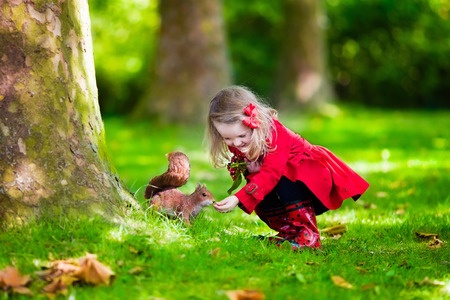Tips for Keeping Pet Squirrels
August 25, 2017
It doesn’t happen to many people, but there are those who have come upon orphaned baby squirrels – or at least ones separated from their mothers. For those who ever find themselves in this situation, if they do decide to act and help the defenseless creature, the first thing to do is keep the squirrel alive, especially if there are injuries or signs of malnourishment (do research first).
No matter how much help individuals offer, the ideal outcome is to reunite the squirrel with its mother, but if this isn’t possible, as in most cases, find a local wildlife rehabilitator to care for the squirrel and ideally reintroduce it back into the wild. While it’s likely better to avoid keeping a squirrel as a pet, there are cases where there's no better option. If someone opts to go this route, here are a few tips for taking care of a pet squirrel.
Cannot be Un-House Broken
Squirrels can live up to two decades in captivity, and the longer they’re kept in a home, the less likely they could ever be returned to the wild. If a squirrel loses its fear of people or other animals (due to being around family dogs or cats), attempting to reintroduce it to the wild could be deadly. Squirrel owners cannot simply let their animal loose if they decide they cannot handle the responsibility as it won’t have the learned skills and behaviors necessary to survive.
Must Have a Cage
Squirrel owners absolutely must provide a humane-sized cage to ensure the animal does not run around the house while its owners aren’t there. This is essential because, for one, squirrels are incredibly curious and will explore every nook and cranny, which includes places with electrical cords and potentially toxic substances—a huge problem considering a squirrel’s natural proclivity toward chewing everything. As well, squirrels are very athletic—the jumping, running, and climbing they do outside, they will do inside as well.
In addition to food and water, a cage (or squirrel-proofed spare room) must provide things the squirrel can chew on, such as branches or sticks, because its front teeth will continuously grow and must be worn down through chewing.
Must Provide Attention and “Rec” Time
As with any other pet, squirrels require a lot of attention as well as regular albeit supervised time out of their cage. Some squirrel owners ideally give their pet play time out of the cage each day, offering the opportunity to jump, run, and climb. Frequent contact with their owner through petting will likely domesticate the animal faster and lead to fewer instances of biting or scratching.
Expect Scratches and Bites
As herbivores, squirrels aren’t naturally aggressive, but they do come with and keep their sharp features, as they cannot be declawed. During “rec” time out of the cage, a squirrel’s owner is the closest thing it has to a tree in its immediate vicinity. This often leads to people’s arms and legs being scratched up all the time. Also, as with horses, squirrels cannot see objects directly in front of their faces very well, so they could mistake a finger for an acorn, leading to accidental but painful bites. Even play bites that do not draw blood can emit pain. For these types of scratches and bites, it never hurts to have some antibiotic ointment as well as some Manuka honey for a quick gauze wrap.
Copyright: famveldman / 123RF Stock Photo


.jpg)




